Polls show even Virginia Republicans support nondiscrimination bills
Poll results underscore that anti-LGBTQ Virginia House Republicans are out of step with their own constituents

An overwhelming majority of Virginians support protecting LGBTQ people from discrimination, according to recent polling.
Earlier this month, Jacksonville-based pollster Mason-Dixon surveyed 625 registered voters in Virginia about their support for two bills that would prohibit discrimination based on sexual orientation or gender identity in state employment and housing.
The poll found broad support for the bills not only among Democrats and independents, but also among a majority of Republicans.
Overall, 73% of Virginia voters support employment protections, compared to 22% who oppose them. Two-thirds (67%) support housing protections, compared to 27% who oppose them. The poll has a margin of plus or minus 4 percentage points.
Among self-identified Republicans, 63% said they would support legislation to “update Virginia’s nondiscrimination laws to protect gay and transgender people from discrimination in employment,” compared to 30% who would oppose it.
Just over half (53%) of self-identified Republicans said they would support similar legislation prohibiting discrimination in housing, compared to 38% who would oppose it.
Regionally, support for employment protections reaches a high of 86% in Northern Virginia, followed by 79% in Hampton Roads, and 74% in the Richmond Metro area — which together comprise almost two-thirds of the state’s population.
Even in more rural and Republican-leaning areas, support remains high, reaching 69% in the Shenandoah/Piedmont region that covers Northwest and Central Virginia, 59% in the Lynchburg Metro and Southside regions, and 54% in the Southwestern region, which includes Roanoke and Appalachia.
Support for housing follows a similar trend, reaching a high of 83% in Northern Virginia, followed by 73% in Hampton Roads, 66% in the Richmond Metro area, and 62% in the Shenandoah/Piedmont region.
A slim majority, 51%, favor housing protections in Lynchburg and Southside Virginia, and a plurality, or 48%, of voters in Southwest Virginia would support a fair housing bill, compared to 45% who oppose one.
Mason-Dixon’s findings echo a similar poll from February 2018 by The Tarrance Group, a longtime Republican polling firm that has done extensive work in Virginia and on behalf of national Republicans.
In the Tarrance Group’s poll, 59% of “base” Republican voters — described as voters who have participated in at least two of the four last Republican primaries in the commonwealth — believe it “should be against the law to discriminate in public employment against someone who is gay or transgender.”
Of that same group, 55% agreed that similar protections in housing should exist for LGBTQ people.
Both measures were supported by a majority of several sub-groups comprising the Republican Party, including: Trump supporters, NRA supporter, “very/extremely conservative” voters, pro-life voters, and Republicans who participated in all four of the last primary elections.
Both polls’ findings are particularly pertinent, as it is the Republican-controlled House of Delegates who has routinely blocked any bills that seek to advance LGBTQ rights, with many members often citing opposition among their constituents as justification for killing such bills.
By comparison, Republican senators in Virginia have been and continue to be more supportive of LGBTQ equality than their House peers.
Last week, the Senate approved two bills granting protections in housing and state employment by the widest margins in history, with two-thirds of Republican senators voting to approve housing protections, and just under half of the caucus voting for employment protections.

James Parrish, the executive director of Equality Virginia, believes pro-equality supporters have leverage to push both bills during this legislative session.
Part of it is because 2019 is an election year for General Assembly lawmakers in Richmond, and Republicans only hold a slim 51-49 majority.
Also playing a role is the fact that a federal court on Wednesday approved a Democratic-friendly map that redrew 26 House seats to correct Republican-imposed racial gerrymanders that packed black voters in Southern Virginia into as few districts as possible.
As a result, at least seven Republicans will represent districts that were won by Democratic presidential candidate Hillary Clinton in 2016, and at least three other incumbents in Republican-leaning districts barely survived in the 2017 elections.
“The Speaker has a lot of power in the House of Delegates. But the Speaker is Speaker only because of the drawing of a name out of a bowl last year,” Parrish said in a press call with reporters last week. “So it’s front and center in the minds of a lot of these delegates — at least four who won by less than 200 votes — that they want to be seen as representing their constituents and in a place where they are in a position to win in the fall.”
In terms of overall support, levels of support in Virginia are just slightly below the level of support nationally.
According to a recent study from Public Religion Research Institute, 71% of Americans claim to be supportive of laws like the Equality Act, which would make permanent LGBTQ protections against discrimination in employment, housing, and public accommodations.
Were House Speaker Kirk Cox (R-Colonial Heights) to allow a vote, and House Republicans to vote in a way that reflects their constituents’ political views, it would have a significant effect on the lives of LGBTQ Virginians.
To that end, both Equality Virginia and the Human Rights Campaign have invested a significant amount of time into lobbying lawmakers to pass nondiscrimination protections for LGBTQ people.
“I hear stories of discrimination every single day, Zakia McKensey, the founder of Nationz Foundation, an HIV and LGBTQ advocacy group in the commonwealth, said at a Thursday press conference in Richmond calling for the House of Delegates to pass both of the nondiscrimination bills already approved by the Senate. “I’ve personally experienced homelessness due to discrimination. I’ve lost jobs because I am transgender. And just recently, we had an extremely difficult time finding a new location for our Nationz office because of the community our organization supports.
“We were able to find a new office location, and are all settled in now, but the stakes are so much higher for people looking for an apartment that will get them off the street, or for folks who relocate to Virginia for work and need to find a new home for themselves and their families,” McKensey added, indirectly referencing Amazon’s decision to relocate to Northern Virginia.
“Virginia lawmakers, I am asking you: make Virginia safe for me. I’m a home owner. I’m a business owner, I pay taxes, I contribute to my economy, I serve my community. I just want to be free to be my best me, and everyone in my community just wants the same thing.”
Support Metro Weekly’s Journalism
These are challenging times for news organizations. And yet it’s crucial we stay active and provide vital resources and information to both our local readers and the world. So won’t you please take a moment and consider supporting Metro Weekly with a membership? For as little as $5 a month, you can help ensure Metro Weekly magazine and MetroWeekly.com remain free, viable resources as we provide the best, most diverse, culturally-resonant LGBTQ coverage in both the D.C. region and around the world. Memberships come with exclusive perks and discounts, your own personal digital delivery of each week’s magazine (and an archive), access to our Member's Lounge when it launches this fall, and exclusive members-only items like Metro Weekly Membership Mugs and Tote Bags! Check out all our membership levels here and please join us today!






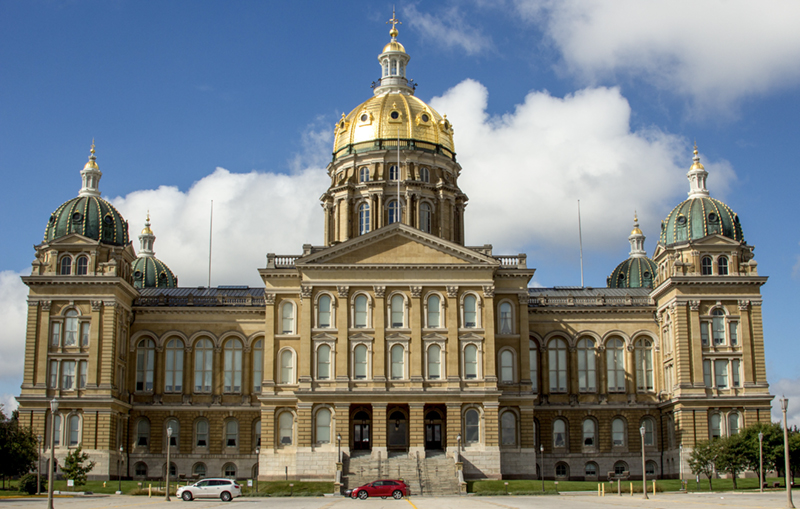
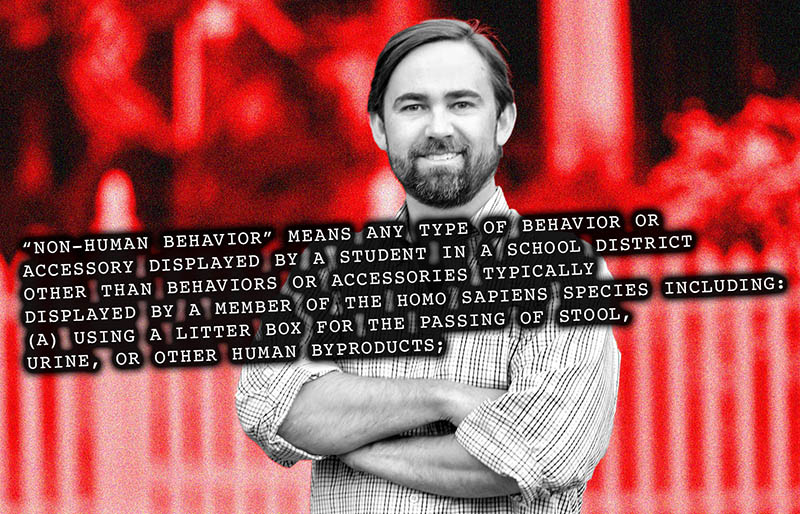















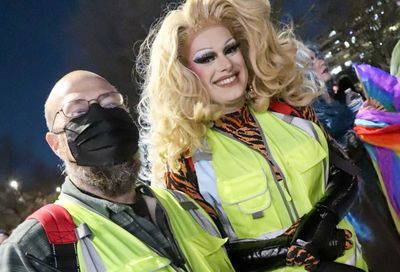
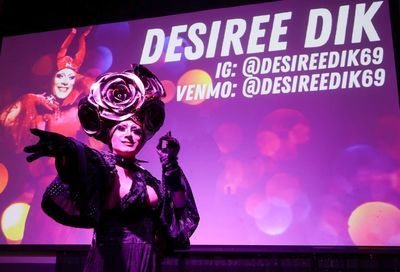
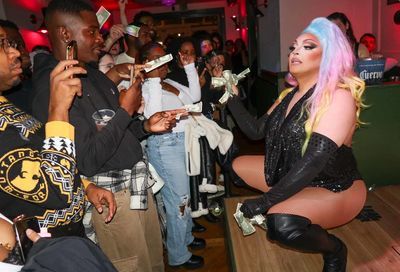
You must be logged in to post a comment.